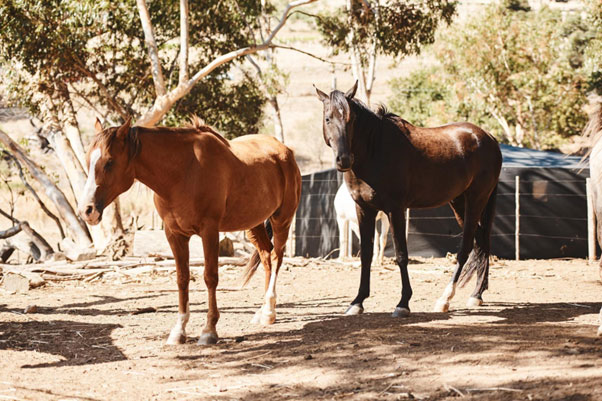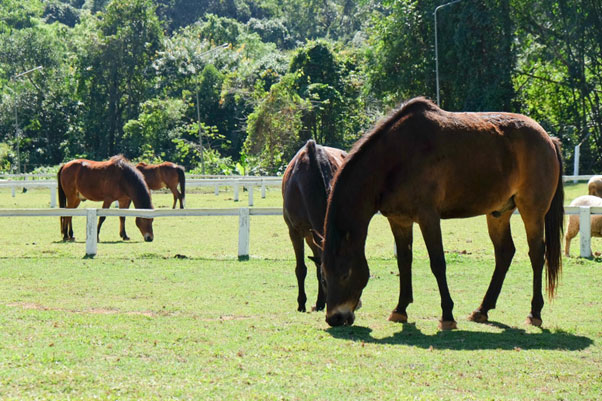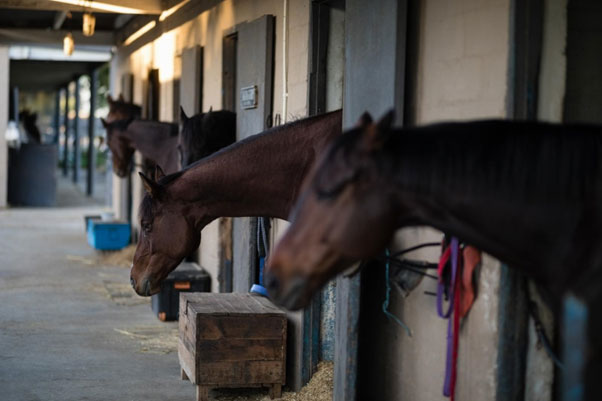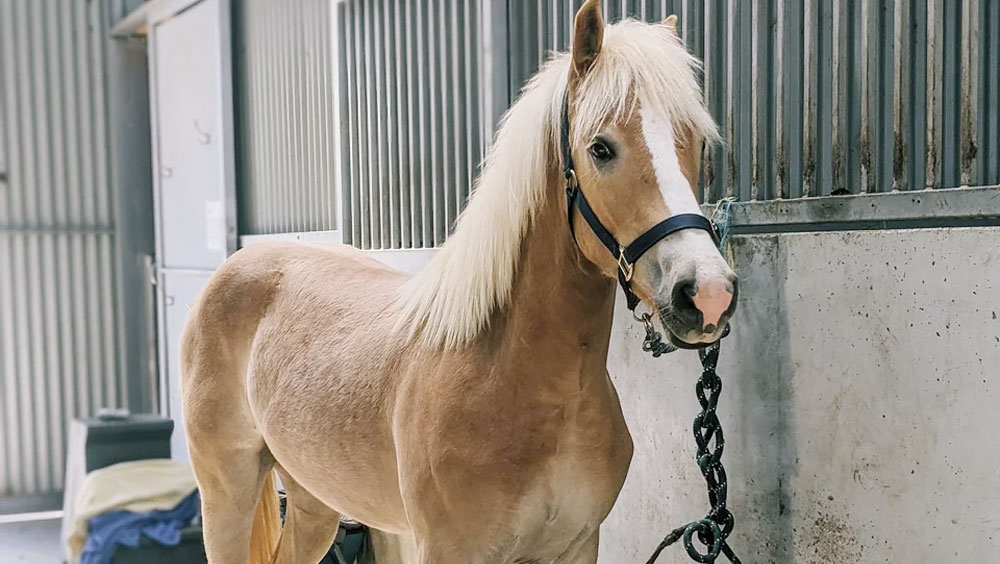Horses have been man's companions for centuries, carrying us across vast landscapes and helping us in agriculture and transportation. But have you ever stopped to wonder how long horses typically live?
Horse lifespan varies based on breed, diet, and care, making it difficult to pinpoint an exact number. However, understanding how long horses can live is important for their proper care and maintenance.
This article will explore the different factors that affect a horse's lifespan and provide insight into why certain breeds live longer than others. Whether you are a horse owner or simply a curious animal lover, understanding the mysteries behind the lifespan of horses can help you better care for these majestic creatures. So, let's delve into the world of horse lifespans and find out just how long horses can live.

Average Lifespan Of Horses
The average lifespan of horses typically ranges between 25 to 30 years, but some horses can live a long and healthy life into their 30s or even 40s with proper care and management. domesticated horses live longer because of proper medical treatments and dietary needs.
Several factors can affect a horse's lifespan, including:
Genetics: Like humans, some horses are genetically predisposed to certain health conditions, which can affect their lifespan.
Diet: Horses that are fed a well-balanced diet with adequate nutrition are more likely to live longer.
Exercise: Regular exercise can help keep a horse's body and mind healthy, which can contribute to a longer lifespan.
Healthcare: Regular veterinary care, including vaccinations, dental care, and parasite control, can help prevent or manage health issues that can shorten a horse's lifespan.
Environmental factors: Horses that live in a safe, stress-free environment with adequate shelter and protection from extreme weather are more likely to live longer.
Compared to other domesticated animals, horses have a relatively long lifespan. Dogs, for example, typically live between 10 to 13 years, while cats live between 12 to 15 years. However, some larger animals like elephants and whales can live for several decades, and tortoises can live for more than 100 years.

Understanding The Aging Process In Horses
Understanding the aging process in horses is important for horse owners and caretakers to provide appropriate care and management for their senior horses.
Signs of aging in horses may include:
Gray hair: Horses can start to develop gray hair around their muzzle, eyes, and ears as they age.
Loss of muscle mass: Senior horses may lose muscle mass and develop a saggy appearance.
Slowing down: Older horses may become slower and more reluctant to move.
Dental problems: Senior horses may experience dental problems such as missing or worn teeth, which can make it difficult to chew and digest food.
Arthritis: As horses age, they may develop arthritis, which can cause joint pain and stiffness.
Health issues that can arise in older horses include:
Lameness: Older horses may develop lameness due to arthritis or other joint problems.
Dental issues: Senior horses may develop dental issues that can cause weight loss, colic, and other health problems.
Weight loss: Senior horses may have difficulty maintaining weight due to dental problems, digestive issues, or other health problems.
Reduced immune function: Older horses may have a weaker immune system, making them more susceptible to infections and diseases.
Care and management of senior horses should focus on maintaining their health and quality of life. This may include:
● Providing a nutritious diet that is appropriate for their age and health condition.
● Regular dental care to prevent dental problems.
● Providing regular exercise to maintain muscle mass and mobility.
● Providing a comfortable and safe environment that is free from hazards and stressors.
● Regular veterinary check-ups to monitor their health and detect any health problems early.
Promoting Longevity In Horses
Nutrition Recommendations
Proper nutrition is a critical aspect of promoting longevity in horses. Feeding your horse a balanced diet that meets their caloric and nutrient needs is essential. They should have access to fresh, clean water at all times.
It's also important to ensure their diet contains the right proportion of hay or pasture, grains, and supplements. Consult with your veterinarian or equine nutritionist to determine the specific nutritional needs of your horse.
Exercise Recommendations
Regular exercise is essential for maintaining good health in horses. Exercise helps to boost their cardiovascular system, strengthens their muscles and joints, and improves their mental well-being. Horses should have ample opportunities for turnout in a safe, enclosed area.
Additionally, they should have regular opportunities for exercise through activities such as riding, lunging, or longing. However, be sure to consult with your veterinarian before beginning any new exercise program, particularly for horses with any pre-existing medical conditions.
Common Mistakes To Avoid
There are several common mistakes that horse owners should avoid to promote longevity in their horses. One such mistake is overfeeding, which can result in obesity and several health problems. Another mistake is underfeeding, leading to nutritional deficiencies and horses being more susceptible to illness.
Poor dental care is also another mistake that horse owners often make, as it can impair their horse's ability to chew and digest food properly. Regular dental checkups by a veterinarian are essential. Lastly, ignoring medical issues or delaying veterinary care also constitutes a significant mistake, as it can lead to severe health complications and even death.
Factors That Affect The Lifespan Of Horses
The lifespan of a horse varies depending on various factors. There is no one-size-fits-all answer to this question. Here are the factors that affect the lifespan of horses.
1. Genetics and breed: Genetics plays a major role in determining the lifespan of a horse. Some breeds are known to have longer lifespans than others, for example, Arabians and Thoroughbreds can live longer compared to Warmbloods. Additionally, certain genetic factors like strength, soundness, and structural integrity are important and can affect a horse’s lifespan.
2. Environment and living conditions:Horses that live in optimal conditions tend to live longer. The environment and living conditions of a horse involve the climate, terrain, pasture, and stables. Horses that have access to ample pasture, good water, and nutritious feed tend to live longer. Similarly, horses that have appropriate shelter from extreme weather and temperatures tend to have longer lives.
3. Quality of care and management: A horse’s lifespan is directly related to the quality of care and management that it receives. This includes proper feeding, grooming, and medical attention. Regular veterinary check-ups, vaccinations, and deworming are important to ensure that the horse is healthy and free from illness or disease. Grooming is also important to keep the horse clean, and free from parasites and to promote good circulation. Proper exercise and training are also crucial to keep the horse fit and healthy.

Caring For Aging Horses
Caring for aging horses requires special considerations to ensure their comfort and quality of life. Senior horses may suffer from dental issues, weight loss or gain, arthritis, and other health issues. To manage these conditions, it is essential to provide them with a balanced diet that includes grain, hay, and supplements.
In addition, regular dental exams and treatments, such as floating or grinding, can help address any issues that arise. For horses prone to arthritis or joint pain, complementary therapies such as acupuncture and massage can provide relief.
Providing senior horses with soft bedding, easy access to food and water, and shelter from harsh weather can also improve their quality of life. It is important to work closely with a veterinarian to develop a personalized care plan that meets the specific needs of each aging horse to ensure they remain healthy and happy.
Conclusion
The lifespan of horses varies depending on various factors such as their breed, diet, exercise routine, and overall health. A domestic horse tend to live longer than its wild counterparts, with an average lifespan of 25 to 30 years. Arabian horses, known for their exceptional endurance, can live up to 30 years or more with proper care.
Quarter horses, on the other hand, have an average lifespan of 25 to 30 years, but some have been known to live up to 40 years. Regardless of horse breed, all horses require proper care and attention to live a long and healthy life. As horse owners, it is our responsibility to ensure that our equine companions receive the care they need to thrive and enjoy a long, happy life.
Frequently Asked Questions:
What Is The Oldest Recorded Age Of A Horse?
The oldest horse was 62 years old, which belonged to a horse named "Old Billy" who lived in 19th century England.
Do Different Breeds Of Horses Have Different Lifespans?
Yes, different breeds of horses can have different lifespans. Average life expectancy of wild horses is between 15-16 years, Arabian horses live between 25-30 years, and domestic horses can live between 25-35 years as well. However, the lifespan of a horse can also depend on various factors such as genetics, nutrition, environment, and healthcare.
How Can I Determine The Age Of My Horse?
There are a few different ways to determine the age of a horse. One common method is to look at a horse's teeth - as a horse ages, their teeth will develop wear patterns and their shape will change. Another way to estimate a horse's age is by looking at their overall physical development and checking for any signs of arthritis or other age-related conditions.
Are There Any Health Issues That Can Affect A Horse's Lifespan?
Some of the common health issues that can impact a horse's lifespan include dental problems, musculoskeletal issues, metabolic disorders, and various types of infections. In addition, factors such as genetics, nutrition, exercise, and environment can also play a role in determining a horse's overall health and lifespan.


